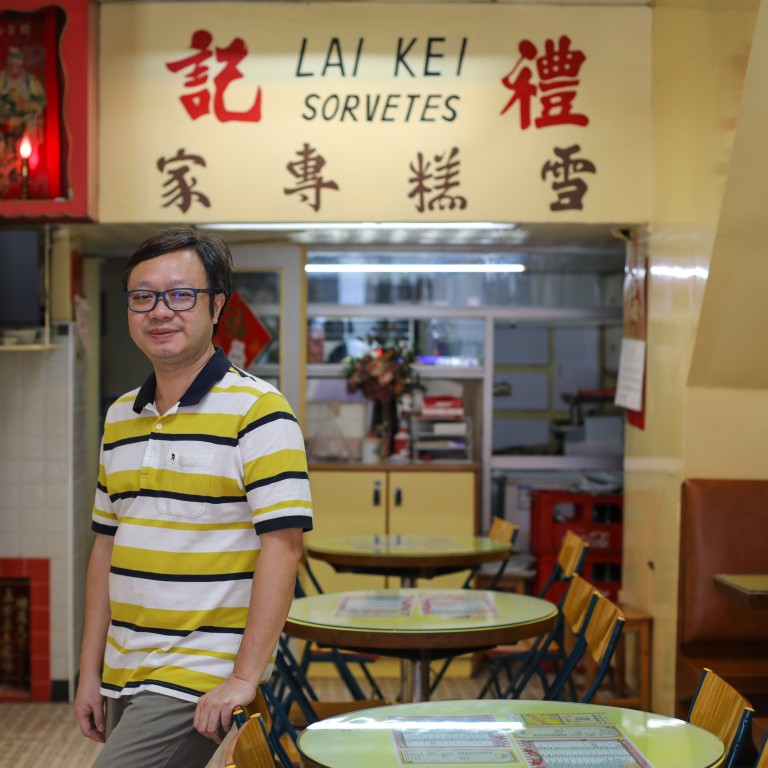
How does one of Macau’s oldest ice cream shops stay relevant? Lai Kei owner says it’s all about the human touch – and working with fashion brands
- Ambert Kong, the third-generation owner of Lai Kei, reveals how one of Macau’s oldest ice cream parlours, founded in 1933, has managed to stay in business
- It is not just about its retro interiors or the old-school packaging on its ice cream sandwiches – it is its tight community and work with fashion brands
Not far from the shadow of the sparkling golden behemoth that is the Grand Lisboa casino hotel lies one of Macau’s oldest ice cream parlours, where generations of residents have congregated for more than 50 years.
Time has largely passed over the delightfully retro interiors, which has helped earn it a place on the tourist radar.
They flock here to preen in front of the red-bean-coloured facade with “Lai Kei Ice Cream” written across it in gold – and to get their hands on its signature ice cream sandwich. It is sold in a paper box featuring a drawing of a girl in pigtails that was sketched by Lai Kei’s founder, Kong Lai-king, who established the ice cream business in 1933 by selling on the streets of Macau.
Inside, fluorescent lighting casts a glow over the simple wooden chairs and butter-hued tabletops.
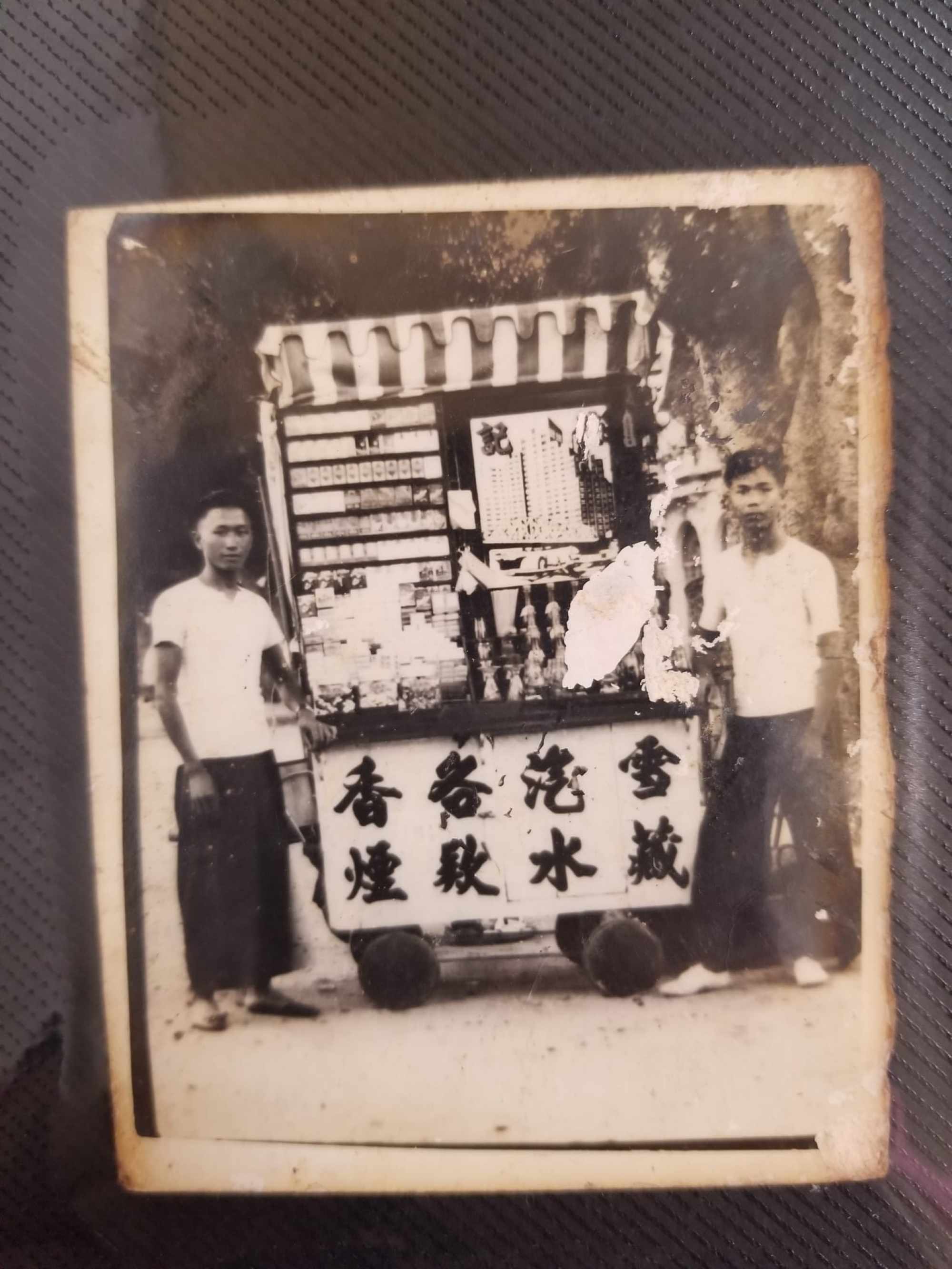
Most days, Kong’s grandson Ambert Kong Wing-tsan, 47, will be surveying the Lai Kei kingdom – greeting a steady stream of regulars and settling in wide-eyed Instagrammers as they lap up the nostalgic decor.
Here, it’s all about keeping things as original as possible; other than tweaking some of the sugar content in the recipes and giving the venue a bit of a fix-up here and there over the years, Lai Kei is a well-preserved time capsule of simpler days.
11 of Hong Kong’s best ice cream and gelato spots to beat the summer heat
The current shop, on Avenida do Conselheiro Ferreira de Almeida, has been around since the 1960s, which explains the distinct design details of the era – the swooping lettering, the arched colour blocking on the walls and the retro drawings of ice cream sundaes, banana splits and sandwiches on the shopfront.
“Our customers are funny,” says Kong. “They always ask us not to renovate the shop.”
He explains that things have come somewhat full circle, because it wasn’t always smooth sailing. Like many small stores, Lai Kei experienced a time in pre-handover Macau when the business was struggling.
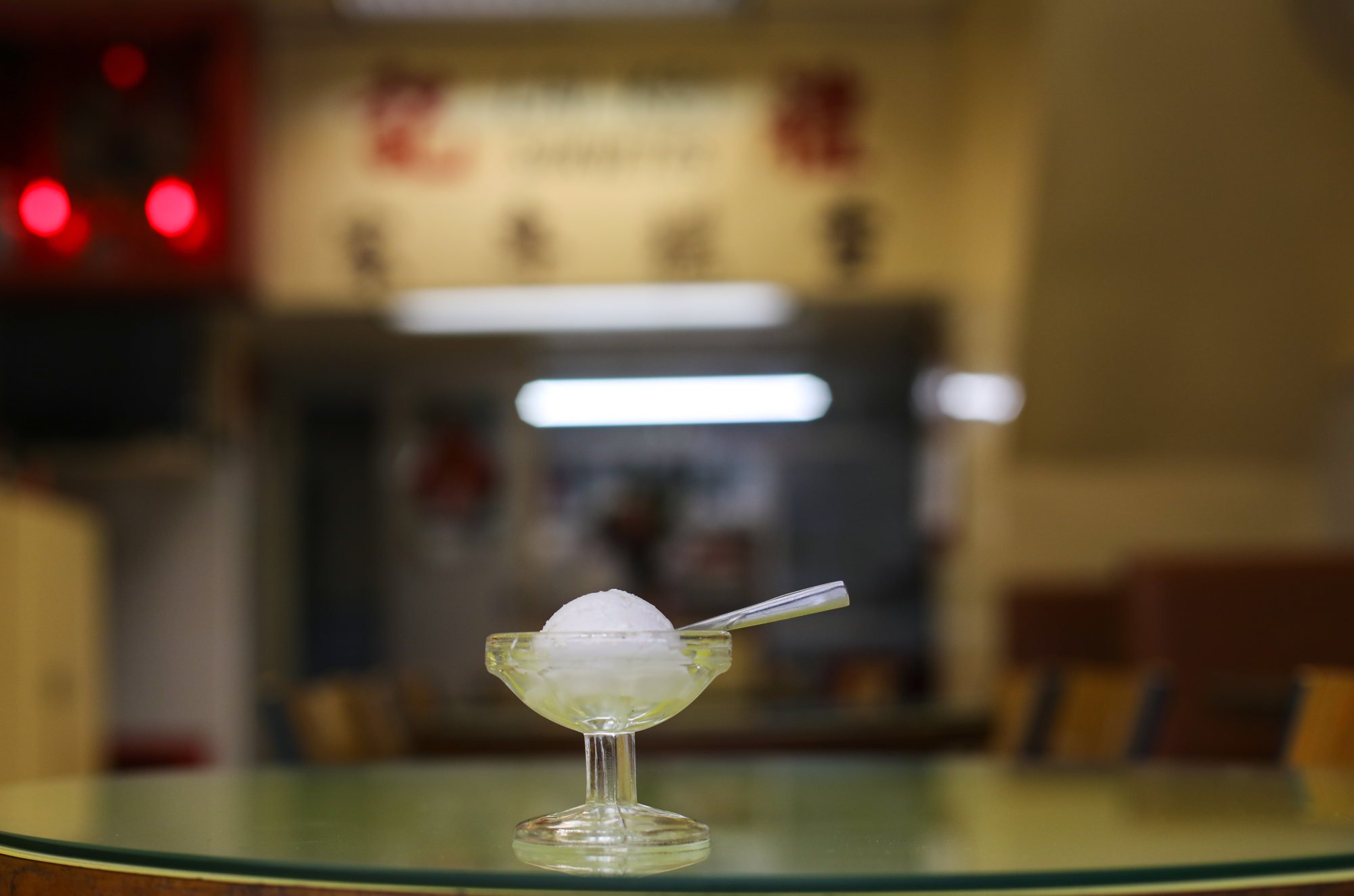
“The economy was bad. A lot of bing sutts [casual cafes] went out of business, and a lot of people went to Hong Kong for better prospects. Hong Kong was seen as the big city while Macau was just a village.
“In a way, our shop became seen as kind of old school,” he recalls. “People wanted new things.”
He adds that from the 80s, when home air conditioning and freezers became widespread, people didn’t go out for ice cream as much. Then came the rapid pace of development that continues today all over Macau – casinos and luxury resorts springing up across the city, pricing out many smaller businesses.
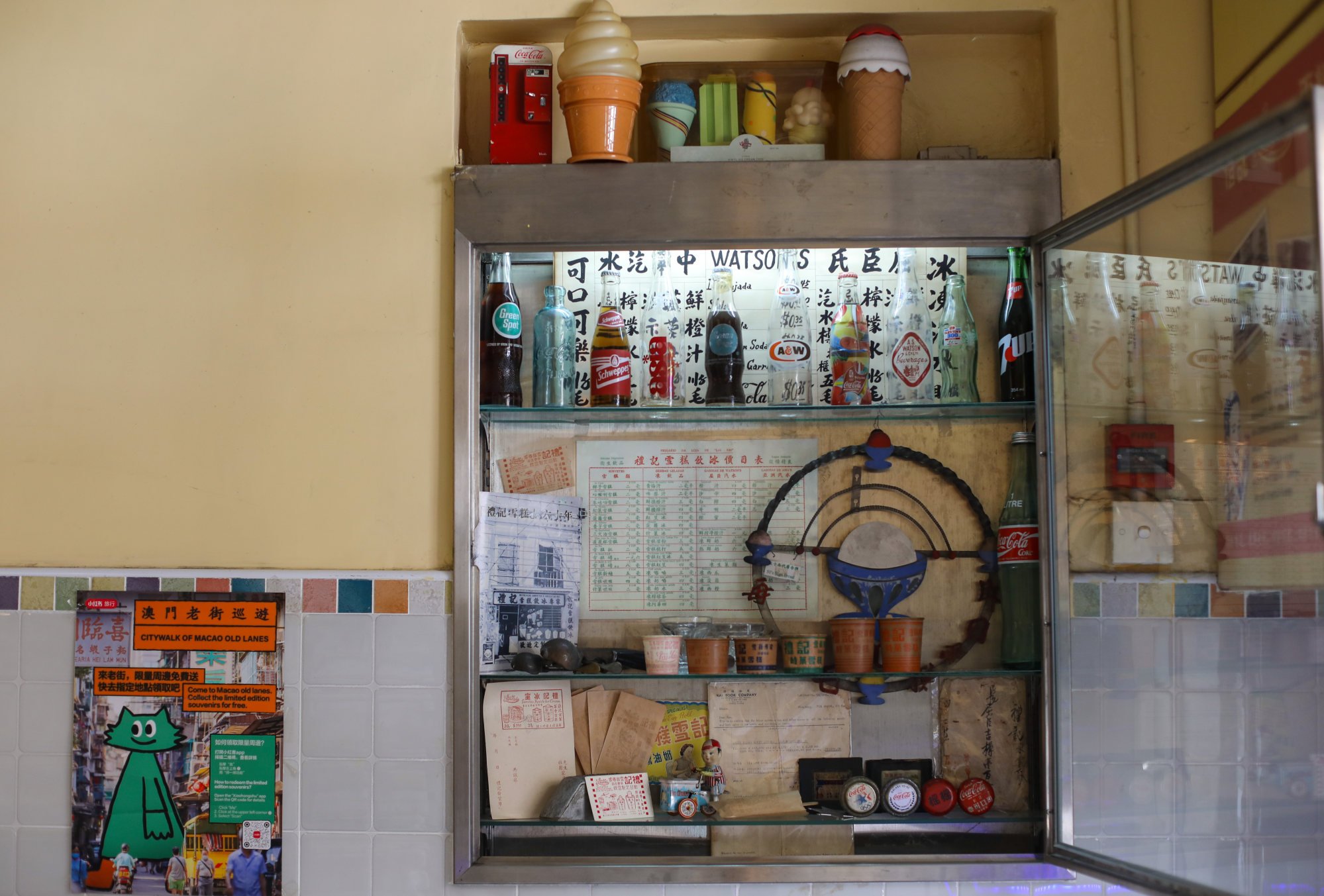
Not only that, but there was an extreme labour shortage as many workers were lured away by the far bigger salaries at the casinos.
“At the time, things were changing so quickly. You’d hear of doctors, nurses and teachers quitting their jobs to work as card dealers, because it paid so much more,” Kong says.
“We had a lot of staff leave us, too – there was no way we could have competed with those salaries. But we thought it would have been a shame to close up shop.”
Italians, Chinese, Arabs – who invented ice cream?
The Kong family were fortunate in that they owned the property in which Lai Kei was located, but still they struggled with staffing.
“Our regulars were like, ‘Our favourite noodle shop has closed, that restaurant has shut,’ and they really encouraged us to stay open.” That same community rallied around during the tough years of Macau’s zero-Covid policy, when Lai Kei had to shut down for extended periods.
In this way, the Kongs’ retention of this charming slice of history is almost defiant, and, it turns out, a solid business move. As Macau became glossier and more international, Lai Kei’s retro appeal only grew.
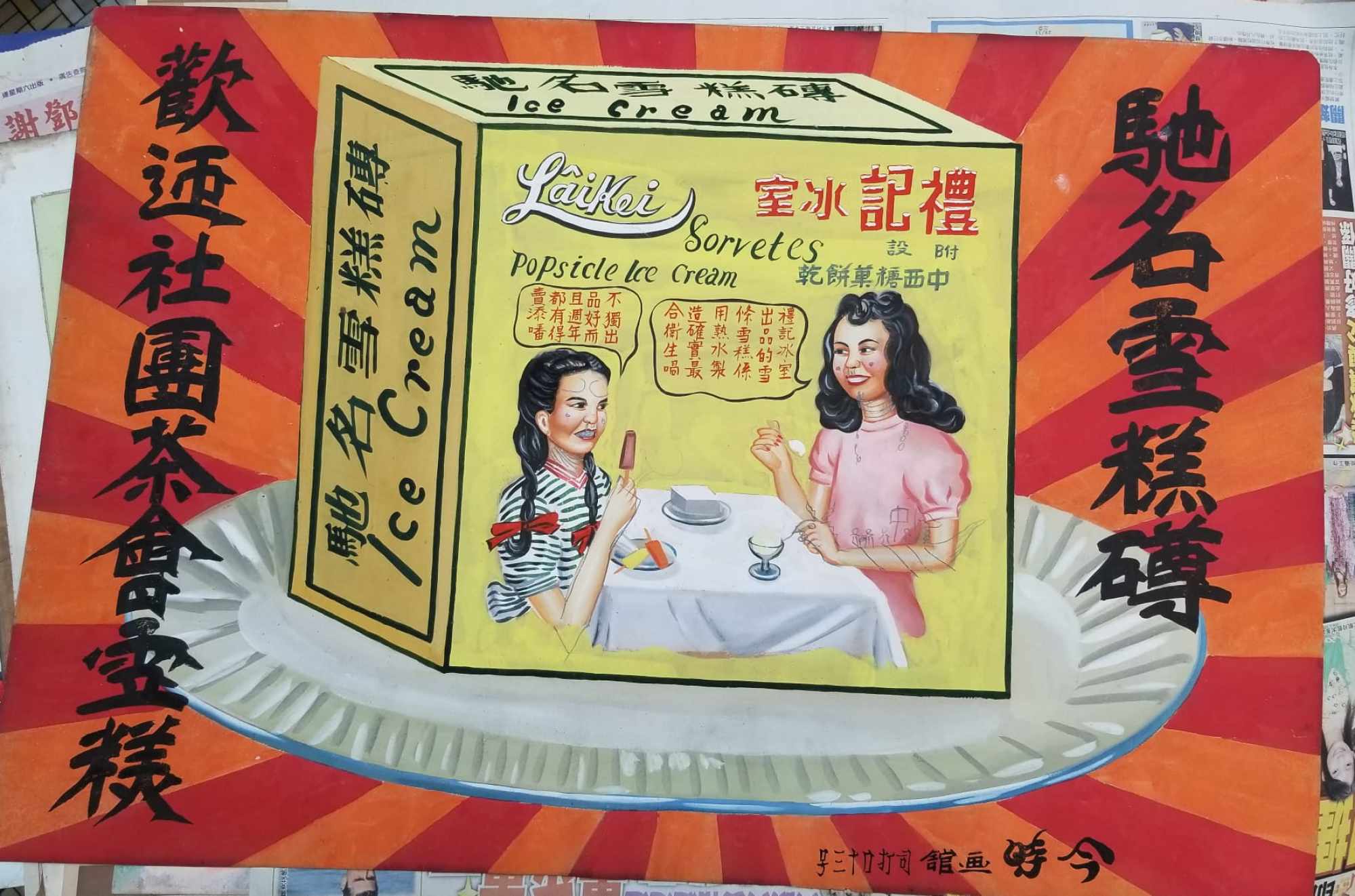
“The city became prosperous after the casinos came, and because so many local shops had closed down, suddenly a place like ours was interesting again. We were practically the only ones left,” he laughs.
Kong is exactly the sort of affable chap you’d expect to find manning a family-run ice cream parlour – when he’s cracking a self-deprecating joke and recounting Lai Kei’s colourful history, his eyes crinkle and disappear behind his thick-rimmed glasses, his words coming out in a quick staccato.
“Actually, when I first took over the business, I didn’t like it that much,” he admits, almost sheepishly.
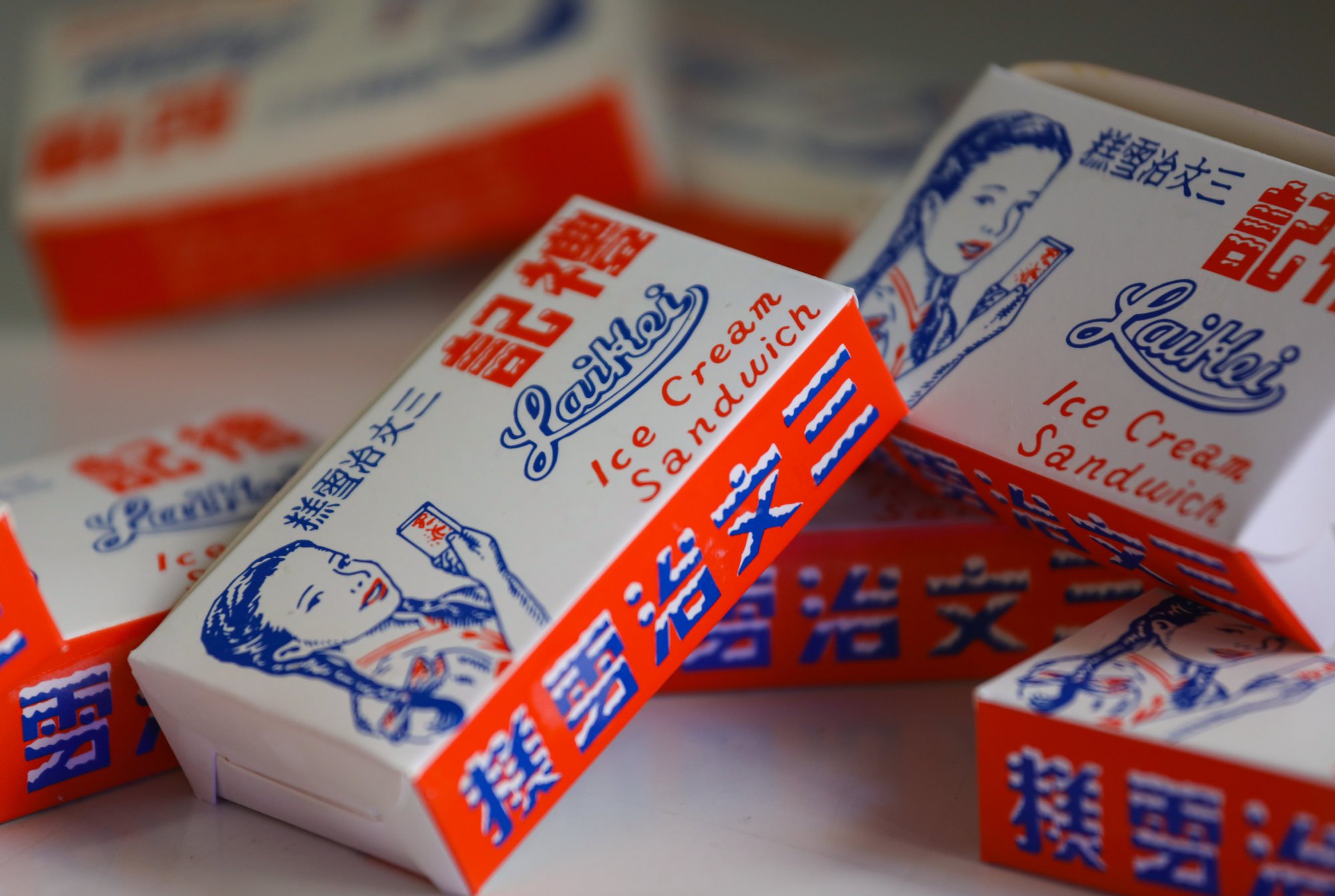
He had trained at the University of California, Los Angeles, as a graphic designer, but stayed in the United States for only a year after graduating.
He returned to Macau to be with his family, finding work as a designer at Sands Macao – but he would still help out at the shop, just as he had since he was a child, and eventually took over from his father, who died in 2011.
It was a little bit of an adjustment for Kong, who immediately felt the immense pressure of carrying the family business into the future.
People will have ice cream when they are either happy or unhappy. Sometimes, through eating, they start sharing with us how they feel. Sometimes, you just start crying
“I felt a little trapped. I was doing an office job, a comfortable seated job. It’s different to food and beverage, which has long hours. It was stressful because I felt like if I didn’t do a good job I had a huge responsibility on my shoulders. It’s not like working in someone else’s company.”
But the doubts melted away as he opted to look on the sunnier side of things. “If I hadn’t joined the family business, I wouldn’t have made so many human connections,” he says. “I wouldn’t have the opportunity to meet so many people.
“Working in this shop, we experience a lot of human emotions. After all, people will have ice cream when they are either happy or unhappy. Sometimes, through eating, they start sharing with us how they feel. Sometimes, you just start crying. We let them sit here and share whatever they’re thinking.”
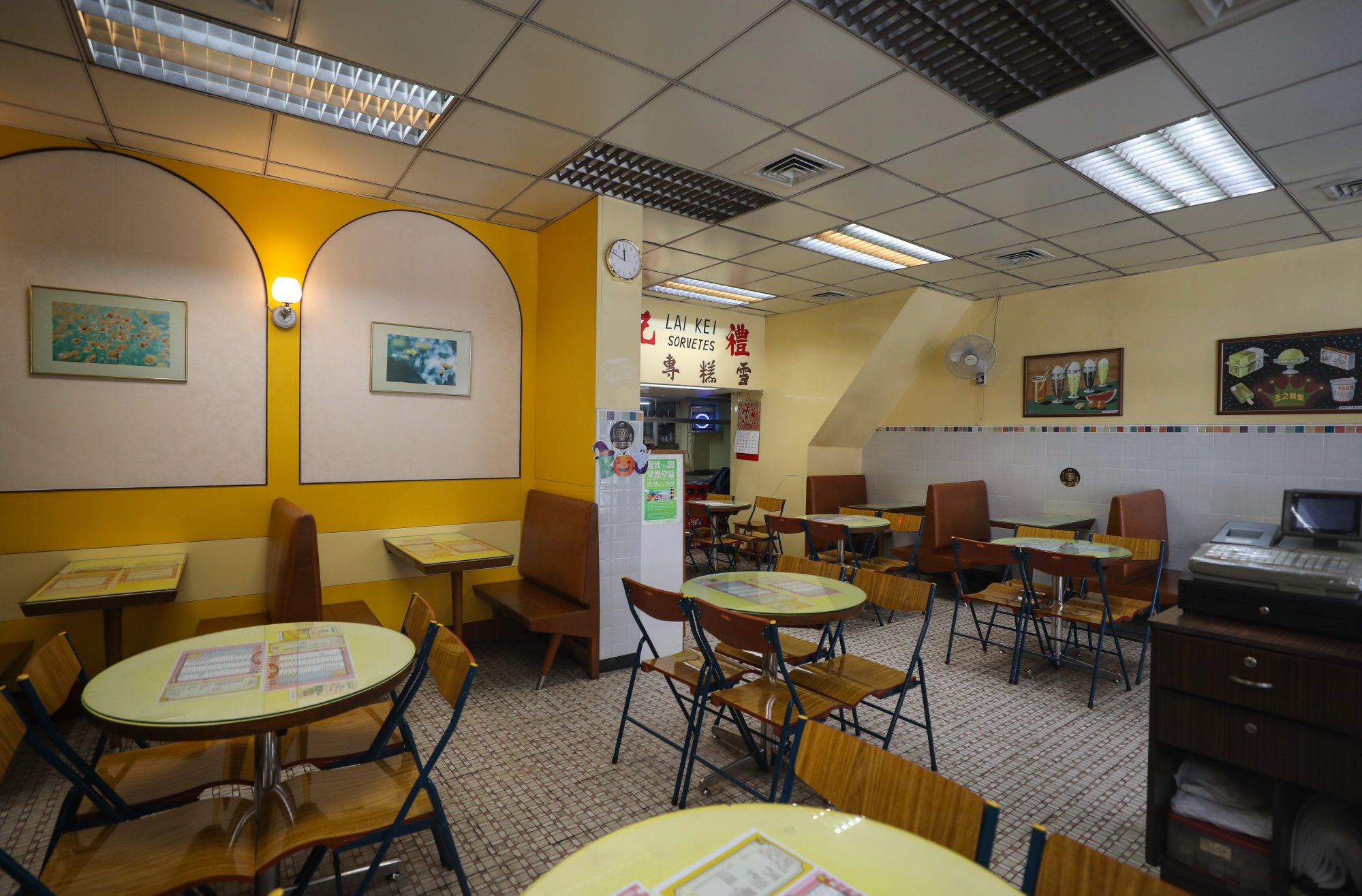
The shop encapsulates the idea of yan ching mei, or the human touch, he adds. “It’s like how you might go to a bakery every day … but it’s not really about the bread.
“We have a lot of elderly regulars. Even if they don’t eat themselves, they bring their grandchildren. People always come here to gossip, to complain, to vent. We hear a lot of stories from the community, and that’s what forms a lot of the memories for us.”
The tight community behind Lai Kei is one of the reasons Kong decided not to change much in the way of the ice creams they offer – there are fewer than a dozen flavours available, including their most popular, coconut and red bean – and instead find ways to extend the Lai Kei brand beyond the shop doors.
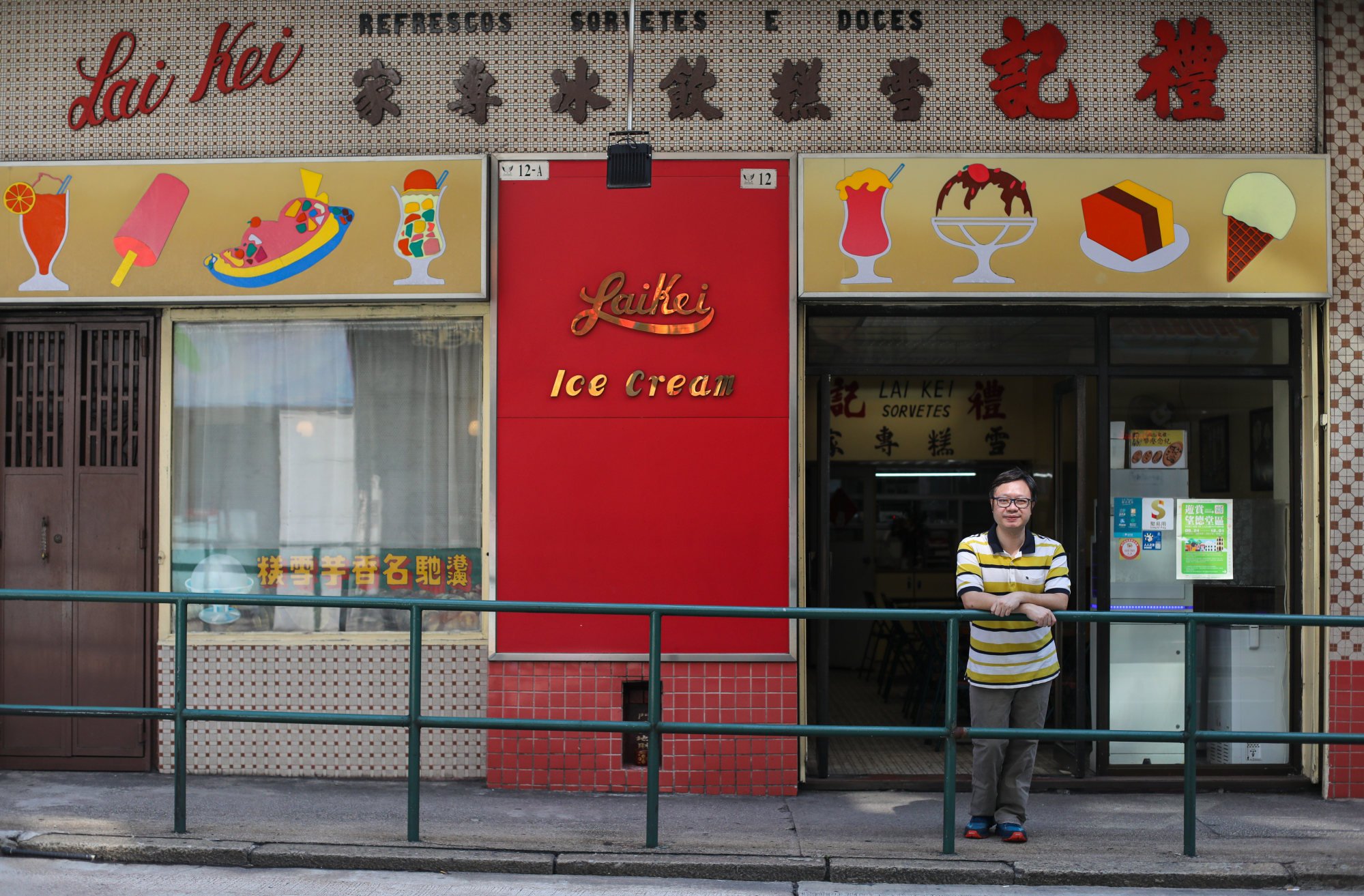
That’s why Lai Kei continues to collaborate with convenience store chain Circle K to offer packaged ice creams – featuring newer flavours such as matcha, milk tea and papaya milk – that can be found all over Macau, a partnership that will soon enter its fifth year.
Lai Kei has also worked with fashion brands including Jimmy Choo and Uniqlo, the latter launching T-shirts inspired by the ice cream parlour’s iconic designs, and it is in discussion for a collaboration with US shoe brand Vans.
White Rabbit ice cream, handbags, cocktail – iconic Chinese candy evolves
“We’ve even provided ice creams at Nicholas Tse’s concerts,” Kong says, gleefully.
“We try a lot of things that put us out there. If you just sell ‘heritage’, you’re going to be seen as old school forever.”
But Kong doesn’t lose sight of what is important.
“People might not think ice cream is anything special. But everything has its unique point – so we’ll just continue to do what we do, and just be ourselves.”

